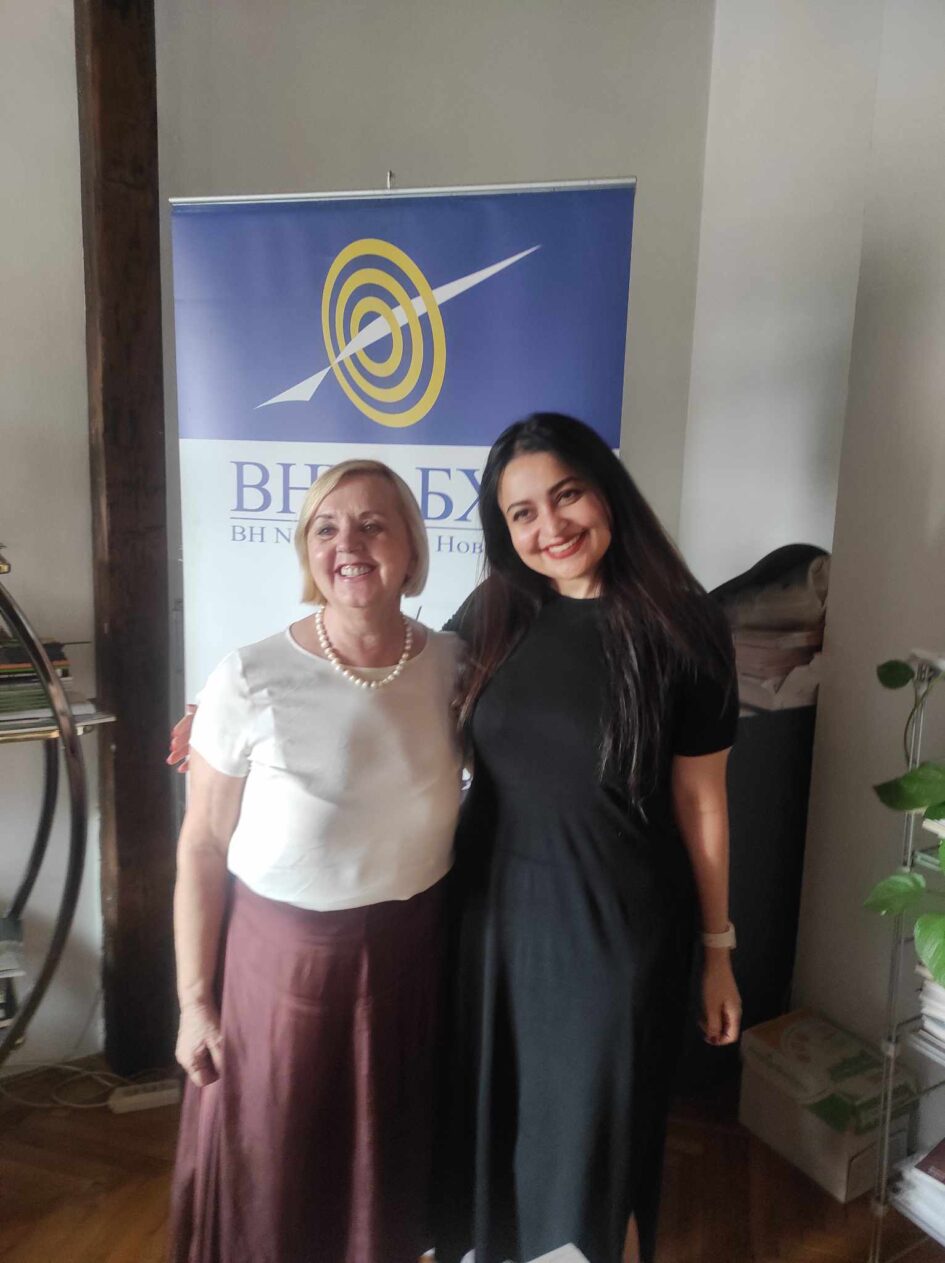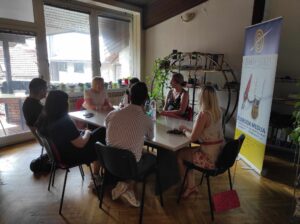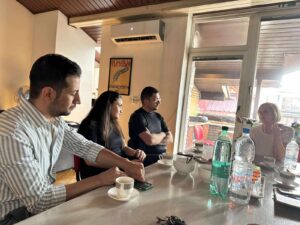
Sarajevo, July 15, 2023 – Yesterday, three journalists from Syria, Libya and Palestine visited the Association of BH Journalists and discussed with representatives of this association media freedom, journalism and the safety of journalists, as well as opportunities for cooperation and mutual support in creating a favorable environment for media work in these three countries.
Borka Rudić, Secretary-General of BH Journalists, introduced the journalists to the previous work and current activities of the association in the field of legal assistance and support to journalists who face security risks in Bosnia and Herzegovina, and expressed her readiness for BH journalists to help colleagues in building a tree system support for journalists and media workers in their countries.

TV journalist Amel Elarbesh from Libya, who is currently working for Libyan television based in Turkey, spoke with deep compassion about the discrimination of female journalists in her country, their position and the inability not to report as well as men in the media. She pointed out that female journalists are exposed to numerous pressures, given that their number is very small in the media industry, and they are rarely registered or have employment contracts.
“Lack of security and inequality in working conditions often lead to self-censorship and giving up of journalists from this profession,” said Elarbesh.
For Ammar Ziadeh, a journalist from Syria, the biggest problem in his country is the frequent, forced and arbitrary detention of journalists.
“I myself spent five months in a Syrian prison, where I was subjected to torture and inhumane conditions,” said Ziadeh. His testimony once again reminded of the extreme dangers that journalists in Syria face every day in their efforts to publish the truth about what is happening. Ziadeh called on international journalist and media associations to more effectively protect and support journalists in Syria.

Palestinian investigative journalist Nizar Habash spoke about the constant pressure on journalists and attacks by Israeli military forces, who killed Al Jazeera journalist Shereen Abu Aqleh in May last year, and do not hesitate to implement other administrative measures to ban Palestinian journalists, such as restricting freedom of movement, denial of information or violations of reporting rights. He reminded also to the unacceptable detention of journalists by the Palestinian Authority and Hamas, especially when criticizing their actions.
Habash expressed his concern about the rise of right-wing forces in the Israeli government and possible new and even more rigid policies towards Palestinians and Palestinian media and journalists.
“A positive and bright example of cooperation between Israeli and Palestinian journalists is the oldest Israeli daily newspaper of a liberal orientation, Haaretz, whose journalists and editors support their Palestinian colleagues and cooperate with us,” concluded Habash.
At the end of the meeting, Rudić expressed her full support for journalists from Libya, Palestine and Syria and emphasized the importance of international solidarity in promoting media freedom and protecting journalists around the world. BH journalists will continue to support free journalism, strengthen dialogue and exchange of experiences with journalists from different countries, in order to improve the profession and create better conditions for the work of journalists.



